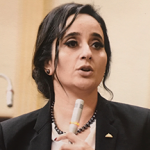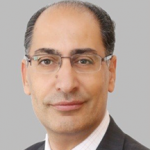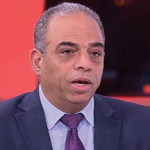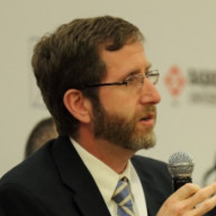The Role of MSMEs in Fostering Inclusive and Equitable Economic Growth in the Context of the Clean Energy Transition in MENA
Overview
This project explores how Micro, Small, and Medium Enterprises (MSMEs) in the MENA region can drive inclusive and equitable economic growth through the clean energy transition. Funded by International Development Research Centre (IDRC)-Canada and implemented by the Economic Research Forum (ERF), Middle East Institute (MEI), and Lebanese Center for Policy Studies (LCPS), the project paves the way to sustainable employment opportunities and promote energy efficiency and equity.
Focusing on 6 countries in the region (namely Jordan, Lebanon, Egypt, Sudan, Morocco & Tunisia), the research assesses existing policy frameworks and impediments to renewable energy adoption and expands the knowledge of sustainable behavior at the enterprise level. It also assesses factors influencing the adoption of green energy and investments in energy efficiency. With this new evidence, the research institutions will inform stakeholders and public debates on clean energy, climate change, and environmental justice, especially as it impacts the employment of women and youth.
Key Highlights
- Primary data (qualitative and quantitative) on key challenges and opportunities facing MSMEs in clean energy domain
- Focus on clean energy transition in MENA region with focus on 6 countries (Egypt, Lebanon, Jordan, Sudan, Tunisia, Morocco)
- Emphasis on inclusivity and gender equality
- Engagement with stakeholders and policymakers
- Thematic research on key intersecting topics (including a) transition in the context of crises, b) renewable energy supply chain, c) potential employment generation, d) gender equality) leading to new insights and comprehensive understanding
Project objectives
- Assessing the impact of the energy transition on job creation and firm performance.
- Examining contributions to energy efficiency, equity, and security.
- Analyzing the potential of MSMEs to drive the transition to renewable energy.
- Identifying barriers to inclusion and developing country-specific policy implications.
Key stakeholders and target audience
Policymakers, development practitioners, private sector, research community, MSME owners, gender experts, energy sector stakeholders, and the general public interested in sustainable development and clean energy.
Access the ERF Primary data and the related reports (qualitative and quantitative):
- Transition to Clean Energy Enterprise Survey- Egypt, TCEESE_2023 – Dataset
- Transition to Clean Energy Enterprise Survey-Tunisia, TCEEST_2023 – Dataset
- Transition to Clean Energy Enterprise Survey- Morocco, TCEESM_2023 – Dataset
- Transition to Clean Energy Enterprise Survey- Jordan, TCEESJ_2023 – Dataset
- Transition to Clean Energy Enterprise Survey- Combined , TCEES_2023 – Dataset
- Qualitative Report: The Role of MSMEs in Fostering Inclusive and Equitable Sustainable Economic Growth within the Context of the Clean Energy Transition in the MENA Region: Sudan Case Study
- Qualitative Report: Accelerating the Energy Transition in Egypt
- Qualitative Report: Perceptions of Energy Transition by Tunisian MSMEs: What is Going Wrong?
- Qualitative Report: The Role of MSMEs in Fostering Inclusive and Equitable Sustainable Economic Growth in the Context of the Renewable Energy Transition in MENA: Jordan Case Study
ERF acknowledges the financial support of the International Development Research Centre (IDRC) for this project.

Atif Kubursi
Professor, McMaster University

Hala Abou-Ali
Professor of Economics and Chair of the Economics Department, Faculty of Economics and Political Science (FEPS), Cairo University

Racha Ramadan
Professor, Faculty of Economics and Political Sciences, Cairo University

Nada Ali
Lecturer, SOAS School of Law, University of London

Abeer Elshennawy
Professor of Economics, American University in Cairo

Mohammed Bouaddi
Associate Professor of Economics, American University in Cairo

Adeel Malik
Globe Fellow in the Economies of Muslim Societies at the Oxford Centre for Islamic Studies and an Associate Professor in Development Economics at the University of Oxford

Muez Ali
Research and Policy Lead at Earthna, Center for a Sustainable Future at Qatar Foundation

Rasha Hassan
Research Consultant

Alzaki Alhelo
PhD, Tufts University

Adel Ben Youssef
Professor of Economics, University Côte d'Azur

Mayada Hassanain
Researcher, International Economics Development Associates (IDEAS)

Walid Hadhri
Associate Professor (HDR), University of Tunis

Ibrahim Saif
CEO, Jordan Strategy Forum

Ahmad Awad
General Director, Phenix Center for Economic and Informatics Studies

Mounir Dahmani
Associate Professor of Economics, University of Gafsa, Tunisia

Colby Connelly
Director, Economics and Energy Program, Middle East Institute

Michaël Tanchum
Non-Resident Scholar, Middle East Institute

Karen E. Young
Non-resident Senior Fellow and Chair of the Economics and Energy Program Advisory Council, Middle East Institute

Li-Chen Sim
Non-Resident Scholar, Middle East Institute

Makram Ouaiss
Executive Director, Lebanese Center for Policy Studies
Regional Policy Conference on: Clean Energy Transition in the Middle East and North Africa and the Role of Small, Medium and Micro Firms
Context Access to energy is becoming increasingly challenging, especially for energy-importing countries in the MENA region. This makes... Read More
Feb 04, 2025
The Role of MSMEs in Fostering Inclusive and Equitable Economic Growth in the Context of the Clean Energy Transition in Egypt and Sudan
Context Access to energy is becoming increasingly challenging, especially for energy-importing countries in the MENA region. This makes... Read More
Sep 25, 2024
The Role of MSMEs in Fostering Inclusive and Equitable Economic Growth in the Context of the Clean Energy Transition in Tunisia
Context Access to energy is becoming increasingly challenging, especially for energy-importing countries in the MENA region. This makes... Read More
Nov 08, 2024
Transition to Renewable Energy in the Middle East and North Africa Region: The Imperatives, Benefits, Drivers, Barriers and the Role…
Summary This report is one contribution to a large and rich compendium of seminal research studies conducted by... Read More
Empowering MSMEs in Jordan: Driving Sustainable Economic Growth through the Renewable Energy Transition
In a nutshell Micro, Small, and Medium Enterprises (MSMEs) constitute over 99% of Jordan’s enterprises and employ 60%... Read More
تمكين المشروعات متناهية الصغر والصغيرة والمتوسطة في الأردن: دفع عجلة النمو الاقتصادي المستدام من خلال التحول إلى استخدام الطاقة المتجددة
رسائل أساسية تشكل المشروعات متناهية الصغر والصغيرة والمتوسطة أكثر من 99% من إجمالي المشروعات بالأردن وتستوعب 60% من... Read More
In the Context of the Renewable Energy: Transition in MENA – The Role of MSMEs in Fostering Inclusive, Equitable, and…
Summary In Jordan, micro, small, or medium enterprises (MSMEs) make up over 99 percent of enterprises and employ... Read More
Gender Equality, Climate Change, and Clean Energy in the Middle East and North Africa
Summary Background There is growing interest in climate change and clean energy in the Middle East and North... Read More
Potential Employment Generation Capacity of Renewable Energy in MENA
The Middle East and North Africa (MENA) region, globally renowned for its vast reserves of fossil fuels, is... Read More
Navigating the Green Energy Transition in the MENA Region
In a nutshell: The MENA region’s over-reliance on hydrocarbon exports has led to serious economic imbalances and limited... Read More
Employment Generation Capacity of Renewable Energy in MENA
In a nutshell: The adoption of green energy technologies necessitates the establishment of new supporting and downstream industries,... Read More
دوافع تبني الشركات الصغيرة والمتوسطة للطاقة المتجددة في مصر
رسائل أساسية يتعين على صانعي السياسات في مصر إعطاء الأولوية لإزالة العوائق أمام رائدات الأعمال، حيث من المرجح... Read More
Drivers of Renewable Energy Adoption by SMEs in Egypt
In a nutshell: Policymakers in Egypt should prioritize removing the impediments facing women entrepreneurs since they are more... Read More
Drivers of Renewable Energy Adoption in Egypt’s SMEs
Summary Increasing the adoption of renewable energy (RE) is essential to reduce greenhouse gases and combat climate change.... Read More
Direction of Energizing Change: The Potential of Tunisian SMEs in the Energy Transition
In a nutshell Tunisia's energy transition is delayed due to economic challenges, slow reforms, and the dominance of... Read More
تحفيز التغيير في اسخدام الطاقة: إمكانات المشروعات التونسية متناهية الصغر والصغيرة والمتوسطة في مجال التحول في استخدام الطاقة
رسائل أساسية تأخر التحول في استخدام الطاقة في تونس بسبب التحديات الاقتصادية وبطء وتيرة الإصلاحات وهيمنة الوقود الأحفوري،... Read More
The Role of MSMEs in Fostering Inclusive and Equitable Sustainable Economic Development Within the Context of the Clean Energy Transition…
Summary The prospects for the post-conflict adoption of renewable energy in Sudan depend on various factors, including political... Read More
Under Which Conditions Can Tunisian MSMES Shift to A Successful Energy Transition?
Summary Background: This case study of Tunisia places emphasis on the ongoing energy transition, underscoring its pivotal role... Read More
The Energy Transition and MSMEs in Sudan: Limitations and Opportunities
In a nutshell: Sudan suffers from several political and economic distortions that have hampered growth, and particularly the... Read More
دور المشروعات متناهية الصغر والصغيرة والمتوسطة في عملية التحول في الطاقة في السودان: العوائق والفرص
ملخص يعاني السودان من العديد من الاضطرابات السياسية والاقتصادية التي أدت إلى إعاقة النمو، ولا سيما تطوير البنية... Read More
Gender and Climate Change in the MENA Region: Would Women’s Participation in MSMEs Accelerate the Transition to Clean Energy?
In a nutshell: The process of combatting climate change and transitioning to clean energy affects women and men... Read More
النوع الاجتماعي وتغير المناخ في منطقة الشرق الأوسط وشمال إفريقيا: هل تساهم مشاركة المرأة في الشركات المتوسطة والصغيرة ومتناهية الصغر…
رسائل أساسية تؤثر عملية التصدي لتغير المناخ والتحول إلى الطاقة النظيفة على النساء والرجال بطرق مختلفة في منطقة... Read More
الاقتصاد السياسي لانتقال الطاقة
رسائل أساسية تظل منطقة الشرق الأوسط وشمال أفريقيا استثناءً عالميًا في توجهات الطاقة، إذ ارتفعت كثافة استهلاك الطاقة... Read More
The Political Economy of Energy Transition
In a nutshell MENA remains a global outlier in energy trends. Energy intensity in the region has increased... Read More
Powering the Future of MENA – Energy Transition Country Profiles: Review of Data and Literature
Background The Middle East and North Africa (MENA) region stands at a critical crossroads in its energy transition.... Read More
Gender Equality and Inclusion in MENA: Bridging Gender Gaps in Energy and MSMEs
Background The Middle East and North Africa (MENA) region continues to grapple with entrenched gender disparities, particularly in... Read More
The Political Economy of Energy Transitions in MENA
The combustion of fossil fuels for energy is responsible for over 80% of anthropogenic (human-caused) greenhouse gas emissions,... Read More


